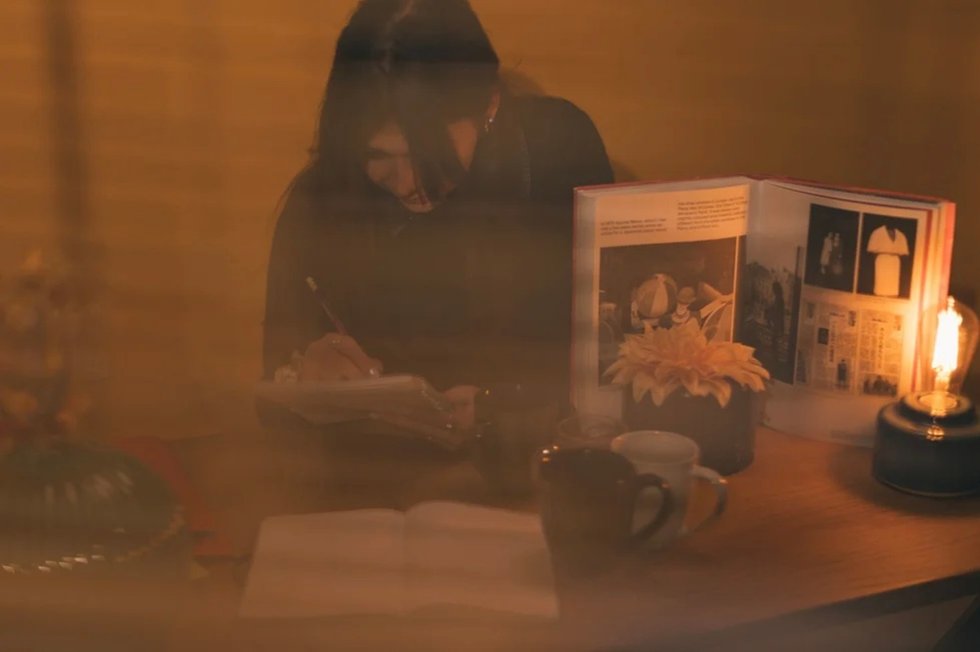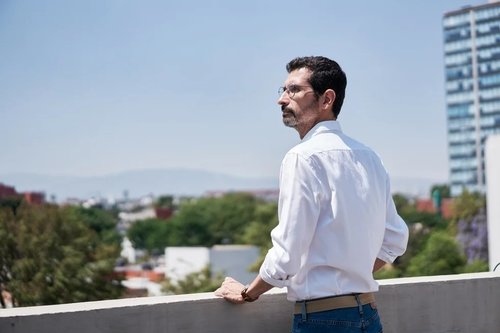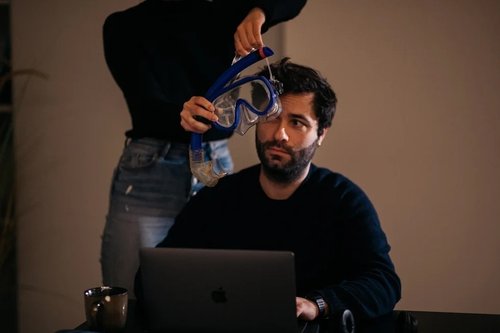This Japanese café makes you stay until you finish your work
24 janv. 2024
3min


Journaliste Modern Work
To help its patrons shrug off laziness while working remotely, the Manuscript Writing Café in Japan insists they finish their tasks on time. It may be an unusual place, but this café helps lone workers to reconnect in a society where the collective still takes precedence even as the work landscape is changing.
The first rule of the Manuscript Writing Café? Tell the owner your deadline for finishing your work. If you don’t do this, you might not even be admitted. The café has only 10 seats – and they’re reserved for those who are committed to working diligently. Within the walls of this Tokyo café and workspace, everything has been designed to optimize productivity. “I eliminated all potential distractions, from music to conversations, and even ordering, to provide an ideal environment for creative work,” says Takuya Kawai, the owner of this self-service cafe.
More than just a coffee shop, this establishment in the Kōenji district is a place where work is sacred. It’s a temple of concentration for writers of all kinds. Students, authors, and journalists come in search of inspiration – with a side order of prodding. Upon arrival, customers choose what level of motivation or even nagging they want to get from the café’s staff based on their workload and allotted time. Methods used to spur on writers include words of encouragement and quizzical looks. Space for one person costs 150 yen ($1.03) for the first half hour and 300 yen ($2.06) per hour after that, according to The Guardian. Once you start writing, you can’t stop until you achieve your goal – but there are reward stickers for those who get there.
Fighting the flaws of WFH
The Manuscript Writing Café was started towards the end of the pandemic as the number of remote workers in Japan had increased from 10.2 million to almost 14 million in just one year, according to a study published in Open Edition Journals. Kawai saw this as an opportunity. “At home, there are many distractions that affect concentration,” says Kawai, who is in his fifties. He also criticizes coworking spaces. “They’re relaxing places where people can’t make as much progress in their work as they desire.”
The Manuscript Writing Café differs from a traditional shared workspace and attracts individuals who expect more of themselves. “In a mega-city like Tokyo, the average living area is limited, so working at home or in crowded places becomes problematic. Establishing a place like Kawai’s café promotes better concentration,” says Claude Leblanc, an Asian affairs journalist at the French newspaper l’Opinion. “Added to this is the need to be supervised to ensure we have done things well, which is a characteristic of Japanese culture.” To illustrate his point, the former editor-in-chief of Courrier International refers to meditation sessions. “There’s a priest behind you who calls you to order if you don’t respect the proper position,” he says. “It’s the same with this café.”
The approach to work is changing, but traditions live on
Are the Japanese truly workaholics like Americans and Europeans think? According to a 2020 OECD report, 77% of 15- to 64-year-olds are in paid employment, that’s almost ten percentage points higher than the OECD average of 66%. Employees in Japan are also more likely to “work very long hours.” However, the concept of work has changed in Japan since the economic crisis that shook the country in the early 1990s. The model of the “salaryman,” who remained loyal to the same company for life and was integrated into the collective, has gradually been replaced by more unpredictable work. “Employees have become adjustment variables in certain companies. Some started laying people off and creating precarious employment contracts,” Leblanc says.
Yet even independent Japanese workers want to be part of the traditional collective culture, as evidenced by the existence and success of the Manuscript Writing Café. As the Japanese proverb reminds everyone: “The nail that sticks out gets hammered down.” So Japanese people avoid being the ‘nail’ – the odd one out – that needs to be brought into line. Fitting in is crucial. “This anti-procrastination café creates a common space for freelancers and remote workers. If they struggle to be productive, the café owner reminds them to be like the others. It’s [the chance for] emulation people need and a far cry from coworking.”
While media outlets such as The New Yorker have explored this quirky café from a Western perspective, the Manuscript Writing Café is not unusual in Japan. In the land of cat and manga cafés, the existence of a space where procrastination is unwelcome fits perfectly into the current trend of Japanese society. “This place addresses a need. It allows people on the fringes of society to return to conformity,” says Leblanc. “It enables the Japanese to create connections while still focusing on the fundamental element of their society: work.”
Besides literary and creative professionals, will this kind of café be successful for other solitary workers prone to procrastination? It’s a possibility that wouldn’t surprise Japanophiles.
Translated by Lorraine Posthuma
Photo: Welcome to the Jungle
Follow Welcome to the Jungle on Facebook, LinkedIn, and Instagram, and subscribe to our newsletterto get our latest articles every week!

Inspirez-vous davantage sur : A l'international

Germany trials the four-day workweek: “Free time is invaluable”
Germany's four-day workweek trial may be the solution to greater productivity, worker satisfaction, and work-life balance.
10 juin 2024

The Fuckup Nights movement: The art of sharing failures on stage
Discover the global movement fostering learning, community, and authenticity with Fuckup Nights co-founder Pepe Villatoro.
23 mai 2024

Why is Europe so eager to attract foreign workers?
Looking for work abroad? Now might be your chance. The European Union is facing labor shortages, prompting efforts to attract foreign workers.
22 mai 2024

What if working less isn't the answer?
For sociologist and researcher Julia Posca, "It's not just about working less, it’s mainly about working better."
10 avr. 2024

Hangover leave? Pawternity PTO? Explore the world’s quirkiest paid leave initiatives
Need time off for your birthday, a breakup or simply a lack of motivation? In some countries, it's possible.
04 avr. 2024
La newsletter qui fait le taf
Envie de ne louper aucun de nos articles ? Une fois par semaine, des histoires, des jobs et des conseils dans votre boite mail.

Vous êtes à la recherche d’une nouvelle opportunité ?
Plus de 200 000 candidats ont trouvé un emploi sur Welcome to the Jungle.
Explorer les jobs